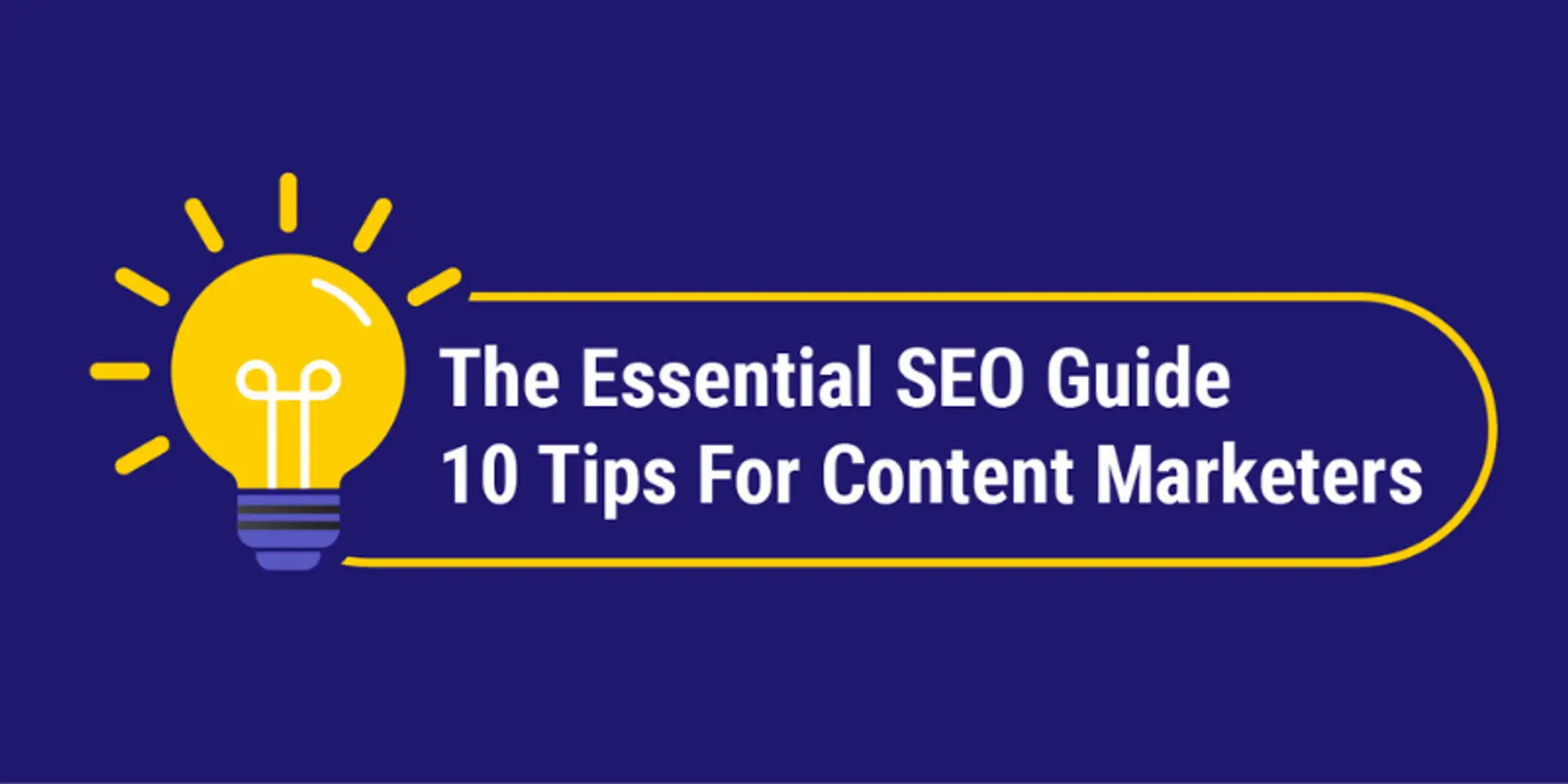An essential SEO guide: 10 tips for content marketers
One of the most significant challenges marketers & content creators face is how to balance creating valuable content that appeals to their audience while improving their search ranking. Here are 10 unique & practical tips to achieve the same.
A study conducted with over 1,500 marketing agencies for B2B, B2C, non-profits, and other organisations found that 84 percent had a content marketing strategy. This figure alone shows how valuable this strategy has been and become for organisations.
Professional agencies and content creators alike recognise the incredible value of this marketing methodology. Not only is it an effective way to create value and connection with your audience, but it can also be optimised to increase your search ranking.
However, one of the most significant challenges marketers and content creators face is how to balance creating valuable content that appeals to their audience while improving their search ranking.
Let’s look at 10 unique and practical tips for both novice and professional content marketers.
Know your subject
Whether you are writing on advanced technologies or intricate financial strategies, you must thoroughly understand your topic and audience. If you genuinely want to create content that makes a difference and successfully ranks, you need to consider a few things before getting started. The most essential components to determine before beginning are the keywords to target, the length, and the type of the article. You should analyse top-ranking articles to use as a guideline.

Improve your copywriting skills
Simply put, copywriting is the salesmanship of digital marketing. Compelling and valuable content is nothing without a strong understanding and application of copywriting skills. Consider this, online readers consume only 20 percent of the content that is on the page they are visiting.
What does this mean for content marketers? Every word, sentence, and idea needs to be thoughtful, compelling, and add value. Think of copywriting as the elevator pitch-like skill that grabs your audience’s attention and keeps them interested in what is on the page.
Become familiar with Google’s algorithm
The Google ranking algorithm has become the holy grail of information for digital and content marketers. When you understand and utilise valuable and compelling content, it creates authority and relevance on your pages.
Google’s algorithm prioritises pages that are optimised to create the best experience and value for the visitor. Developing and maintaining a comprehensive understanding of Google’s ranking algorithm gives you an advantage when creating valuable and effective content. Some of Google’s ranking factors include:
- Keyword usage
- Anchor text of external links
- Link popularity
- Authority and trust of the host domain
- Social graphic metrics
- Registration and hosting data
- Traffic
- CTR data

Do not forget to optimise your meta and post elements
While the quality of your content and keywords are incredibly valuable to your marketability and ranking, it is not recommended to treat post titles, meta titles, and meta descriptions as an afterthought. These elements assist in further optimising and maximising your search rank, as well as how the reader interacts with your page.
A post title determines how your reader sees your post’s title on the page, and a metal title is how search engines display your post in their search results. The meta description works very much like sales copy for your post— you have 156 characters to effectively use your keywords and entice users to click on your post.
Prioritise the speed of your site
Just because your focus is on content marketing does not mean that you can forget the technical aspects of your page and site. Consider this sobering fact, 40 percent of users will abandon a web page that takes more than three seconds to load completely.
Just as you consider your reader’s needs and opinions regarding your content, you need to consider their attention span and their time. Your content is useless if the page takes too long to load, and potential readers abandon the site before being exposed to what is on it.

Use your keywords wisely
Whether you are a novice or advanced content marketer, you likely understand the importance of keywords and their frequency. Frequency refers to how often a keyword is used on a webpage. Keyword frequency is different from keyword density.
Frequency refers to the number of times you use your keywords, while density describes the ratio of your keywords to the other words on the page. While it is essential to optimise keywords throughout your content, avoid keyword stuffing and excessive use, which has an adverse effect on rank and SEO.
Utilise page links
External links on your page are the digital equivalent to in-person networking, and Google and other SEO rankings prioritise more sociable content.
Links to other pages in your content demonstrate a comprehensive understanding of your subject and shows that you are committed to sharing more information with your readers.
Find the right tools
Just because algorithms and audiences change and sometimes act unpredictably, that doesn’t mean that content marketers are in the dark or simply taking best guesses when it applies to creating effective content.
There is a wealth of resources at your disposal to ensure that you are using your content wisely and successfully. Just to highlight a few that you should keep in your toolbox: Google Analytics, Yoast’s SEO Plugin, and SEMRUSH are all quality resources that can help you create content that works.
Optimise your images
We have all heard the saying, “a picture is worth a thousand words," which still holds true for SEO marketing strategies. Though the image on a page acts as a visual to the visitor, it reads as text to a crawler. To ensure that search engines understand the meaning and context, it is essential to use proper image names. Rather than leaving the default name on an image used on your page, use relevant keywords or phrases to identify the image.

Create an effective title
Most readers do not stick around to read the article if the title doesn’t grab their attention. Optimising your title is a low-effort but high-impact SEO undertaking. Highly-ranked titles are typically between 50-60 characters long, but longer titles work better for social sharing – so it is important to understand your goals and audience. Consider the impact the title has on your reader’s emotional and intellectual appeals, but also be sure to include any important keywords.
The bottom line
SEO is here to stay, and for all excellent reasons. It helps to accomplish the core goal of successful marketing — add value. Messaging, branding, demand gen, and all other avenues of marketing are incredibly important, but they mean absolutely nothing if they do not create value for the customer.
Creating content and ensuring that it finds its way to the right audience creates value, authority, and trust — all of which are necessary to further the consumer’s journey. What other SEO strategies are you following?
Edited by Saheli Sen Gupta
(Disclaimer: The views and opinions expressed in this article are those of the author and do not necessarily reflect the views of YourStory.)









